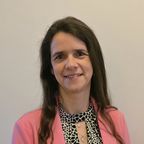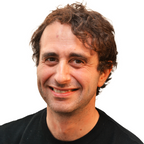Workshops (Concurrent Sessions)
Each workshop runs for 45 minutes. Participants should select based on their interests and experience level.
Main auditorium 3rd floor – General Q&A / Managing AI Projects
Panel: Matthew Williams, Cathy Armstrong
Contributors:
- Salma Husain - MHRA
- Claudia Lindner - General Advice
- Cheuk Ting Ho - Coding Support
Room 201 2nd Floor – State of the Art: AI Resources & Applications
Moderators: Jordan Tsigarides, Ross Coomber
Contributors:
- Akash Raja
- John Jeans
- Justin Green
CANCELLED - Room 204/205 2nd Floor – AI Tools for Research (ORAIA) CANCELLED!!
Moderators: Deiary Kader, Mo Imam, Irrum Afzal
Live Demos:
- Prof Deiary Kader - Introduction to ORAIA and AI Tools for Smarter Research
- Ali Ridha - Demo of AI-Powered Hypothesis Generation: Ideas into Research Questions.
- Irrum Afzal - Data Collection and Scraping with AI
- Andrew Coppola - Data Cleaning and Mapping Made Easy with AI
- Adi Vijay - Data Visualisation and Analysis: Validating AI-Generated Results
What Is Julius? - Zohra Bouchamaoui, Venkat Tata
Julius is an advanced AI-powered data analysis platform designed to make working with data simple, fast, and accessible to everyone, regardless of technical expertise. Instead of requiring complex coding skills or knowledge of statistical programming languages, Julius allows users to easily upload or connect their datasets from various sources such as Excel spreadsheets, CSV files, Google Sheets, or even PDFs. The tool doesn’t just return raw numbers; it can also generate visualizations like bar charts, line graphs, scatter plots, and heat maps that make patterns, trends, and insights much easier to interpret. The tool serves as a bridge between raw data and meaningful scientific insight, enabling more efficient workflows, reproducibility, and clearer communication of results within academic research.
×
Cathy Armstrong
Dr Catherine Armstrong is a Consultant Therapist in Arthroplasty and Lower Limb MSK at University Hospitals Group Liverpool, with over 30 years' experience in physiotherapy and advanced clinical practice. A former President of the Arthroplasty Care Practitioners Association (2020–2022), she specialises in optimising arthroplasty pathways, integrating research, and exploring the role of AI and digital innovation in rehabilitation and surgical outcomes.
×

Claudia Lindner
Senior Research Fellow/Sir Henry Dale Fellow, The University of Manchester
Dr Claudia Lindner is a Senior Research Fellow and Sir Henry Dale Fellow in Translational Medical Imaging at The University of Manchester. Her career includes over 20 years of international experience in the development and application of computational methods, working within multi-disciplinary teams in both industrial and academic settings. Claudia uses methods from computer vision, machine learning and data science to develop automatic systems for analysing structures in medical images, with a particular focus on musculoskeletal applications. She has published over 50 peer-reviewed papers, and is dedicated to impactful research, actively advancing her work towards real-world solutions.
Claudia is a member of the steering committee of the Worldwide Collaboration on OsteoArthritis prediCtion for the Hip (World COACH) Consortium, a member of the Royal College of Radiologists Clinical Radiology Academic Committee, a member of the Versus Arthritis College of Experts, and an editorial board member for BJR Artificial Intelligence. In her role as the Translation Lead for the Christabel Pankhurst Institute for Health Technology Research and Innovation, Claudia directs her efforts towards facilitating the translation of research findings into benefits for society and leads the development of the Pankhurst Health Technology Translation Toolkit.
×
Cheuk Ting Ho
After having a career as a Data Scientist and Developer Advocate, Cheuk dedicated her work to the open-source community. Currently, she is working as AI developer advocate for JetBrains. She has co-founded Humble Data, a beginner Python workshop that has been happening around the world. She has served the EuroPython Society board for two years and is now a fellow and director of the Python Software Foundation.
×
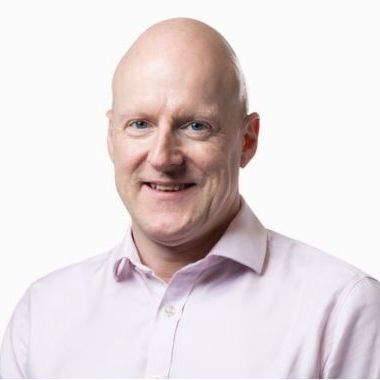
Professor Mike Reed
Consultant Orthopaedic Surgeon and Chair, NJR Surgical Performance Committee, Northumbria Healthcare NHS Foundation Trust,
Professor Mike Reed is a full-time trauma and hip and knee joint replacement surgeon. He trained in the North of England and did fellowships in New Zealand.
He leads Trauma and Orthopaedics at Northumbria Healthcare, working with a team of 31 talented colleagues.
His research focuses on clinical outcomes particularly around short stay surgery as well as infection prevention, diagnosis and management. He has co-developed and commercialised a validated medical device to predict perioperatice risk. Professor Reed is on the steering committee and executive of the National Joint Registry (NJR) and Chaired the Annual Report from 2019-2024. He now leads on Surgical Performance for the NJR, is a trustee for the Orthopaedic Research UK charity and is on the grant awards committee for the National Institute Health and Care Research (NIHR) (i4i PDA). He has led clinical trials for industry and NIHR, and works academically with the University of York.
×

Dr John Jeans
Dr John Jeans is a consultant anaesthetist and a director of healthcare transformation agency 33n. He leads the NHS CLEAR (Clinically-Led workforce and Activity Redesign) Programme nationally. Following his father’s experience of care in 2013, he turned his attention to healthcare modelling and system redesign, aiming to translate data into better patient care.
Working with like-minded colleagues, Dr Jeans helped establish the National CLEAR Programme as a work-based learning initiative delivered by 33n and hosted by East Lancashire Hospitals NHS Trust. CLEAR combines clinical insight, rigorous data analysis and technology to create new models of care and workforce redesign. In practice, this means using AI-enabled analytics alongside frontline expertise to surface opportunities, test options, and co-design changes with clinical teams.
CLEAR projects focus on outcomes that matter to the NHS: clinically sound recommendations that services can implement, operationally feasible pathways, and solutions that are financially viable. By keeping clinicians at the centre and strengthening teams’ capability to work with data and technology, Dr Jeans supports safe adoption, better decision-making and continuous improvement across systems. His work reflects a consistent approach: clinically led transformation, powered by data and increasingly AI-enabled tools, to improve the delivery of care.
×
Justin Green
Justin is the CEO and co-founder of OPCI, a MedTech startup using AI to support elective surgery. He previously trained as an orthopaedic registrar and clinical data scientist, combining hands-on clinical expertise with a deep understanding of data-driven healthcare innovation. He was awarded a National Clinical Research Fellowship in 2022, exploring the application of digital technologies in determining longitudinal outcomes in hip surgery and is currently reading for a PhD in Artificial Intelligence at Newcastle University, where his interests lie in ethics and responsible application of AI in healthcare. Justin co-leads the Musculoskeletal interest group at The Alan Turing Institute and continues to act as a Clinical Safety Officer in addition to contributing to the NortHFutures Digital Skills collaborative, supporting education and training of health and social care professionals in digital technology across Northeast England.
×
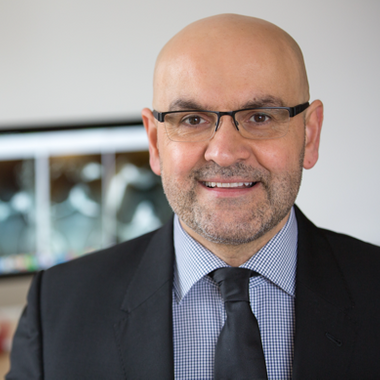
Deiary Kader
Consultant Orthopaedic Surgeon, South West London Elective Orthopaedic Centre (SWLEOC)
Professor Kader is a surgeon, researcher, academic, educationalist and humanitarian. He is fellowship trained knee and a sports injury surgeon with extensive experience in knee ligament reconstruction, primary/revision knee arthroplasty, patellofemoral joint instability and multiligament reconstruction.
After finishing the specialist registrar training in Scotland and knee fellowship in Sydney/Australia and Newcastle in 2005, he was appointed as a consultant trauma and orthopaedic surgeon at the QEH NHS trust in Gateshead and became the team doctor for Newcastle United football club. This gave him an opportunity to care for professional athletes and obtain the membership of the faculty of sport and exercise medicine in the UK. In August 2015 he was appointed as a consultant orthopaedic surgeon specialising in complex knee surgery at South West London Elective Orthopaedic Centre (SWLEOC) where he is now the acting director of research. Professor Kader is the current President of BOSTAA. Since 2010 professor Kader has been dedicating a significant amount of his time to humanitarian work with NGMV medical Volunteers and Life Academy (www.ngmvcharity.co.uk) and the International Committee of the Red Cross (ICRC) at their war wounded trauma reconstruction centre in Tripoli/Lebanon. Recently he has become the advisor and surgeon for Swisscross Foundation in Kurdistan/Iraq. His passion for research and postgraduate training has earned him a visiting professor position , since 2007, at the Faculty of Health and Life Sciences in Northumbria University/ Newcastle. In the past 15 years he has published more than 130 scientific papers, book chapters, articles and the co-author of two of the best-selling Postgraduate Orthopaedic books in the UK. He is also the director for London Research Course, Co-director of the Advanced knee arthroscopy cadaveric course and faculty of the six days postgraduate FRCS Orthopaedic courses nationally and internationally. He is a member of the Royal College of Surgeons (RCSEng) quality assessment panel and appointments advisory committee (AAC). In 2017 he has joined the FRCS Tr&Orth examiner’s board (JCIE-RCS).
×
Professor Mohamed Imam
Professor Mohamed A. Imam MD, MSc (Hons), D.SportMed, PhD, FRCS (Tr & Orth) is Clinical Lead for Trauma and Consultant Upper Limb & Complex Trauma Surgeon at the Rowley Bristow Orthopaedic Centre, Ashford and St Peter’s Hospitals, and Professor of Digital Health and Medical Director at the Smart Health Centre, University of East London.
He integrates artificial intelligence and machine learning into orthopaedics—particularly predictive modelling for sports injuries—and has authored over 120 peer-reviewed publications alongside editorial roles with leading journals.
He has edited two Springer Nature reference books on shoulder and elbow trauma and currently editing a book on Transformative Digital Health. He co founded the OrthoGlobe Collaborative and serves in many national and international roles.
His recognition includes multiple awards from AAOS, ISAKOS, AO, EFORT and NHS, and he serves in the GMC in assessment and examination roles.
×
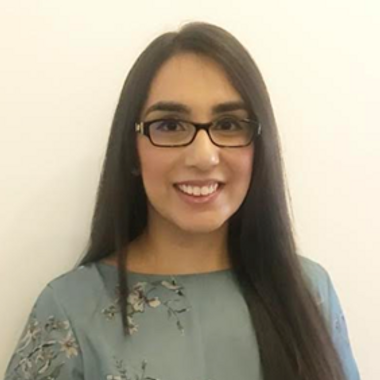
Irrum Afzal
Honorary lecturer, Imperial College, BOSTAA Committee, OREF Non-Executive Board Member, NOA Director's Award, SWLEOC London
Irrum Afzal is an Imperial College London graduate and a recipient of the National Orthopaedic Alliance (NOA) Director’s Award. In addition to her academic qualifications, she holds both PRINCE2 Practitioner and Foundation certifications, demonstrating strong project management expertise.
With experience spanning both the NHS and private healthcare sectors, she brings a unique blend of research and operational insight, effectively delivering and managing numerous healthcare and research projects. Irrum has supported and overseen the delivery of multiple studies in compliance with regulatory frameworks and governance requirements. Her work is underpinned by a strong commitment to Good Clinical Practice (GCP). As a Professional Member of the Research Ethics Committee for the Health Research Authority (HRA), she holds a nationally significant role in safeguarding the ethical and scientific integrity of clinical research in the UK. Drawing on her extensive experience in the practical application of Good Clinical Practice (GCP) principles, she provides reviews clinical and non-clinical research ethical applications involving human participants, tissues, or data ensuring that all studies are ethically and methodologically robust, and that the rights, safety, and dignity of participants are fully protected. Irrum has published in various peer-reviewed journals, frequently presents at national and international conferences, and serves as a reviewer for The Bone & Joint Journal.
Irrum holds multiple positions of responsibility, including Vice Chair of Research and Innovation for the NOA, Board Member for OrthoAI (ORAIA), Research Committee Representative for the British Orthopaedic Sports Trauma and Arthroscopy Association (BOSTAA), and Equality, Diversity, and Inclusivity Lead for BOSTAA. She is also a Non-Executive Board Member of the Orthopaedic Research and Education Foundation (OREF), and plays an active role in the Imperial College Alumni Service.
×
Andrew Coppola
Orthopaedic Registrar
Orthopaedic Research Fellow at SWLEOC specialising in AI and Predictive Modeling in healthcare, I completed my medical degree at Barts and The London School of Medicine and Dentistry and a postgraduate Master's in Surgical Innovation at Imperial College London. After completing my core surgical training in London with a focus on orthopaedics, I have been leading AI-driven projects to enhance patient outcomes post-joint replacement. In my role as Lead Innovation Advisor at Infinite Software, I contributed to the development of a tool for patient assessment using real-time big data analysis. My collaborations with computer scientists and contributions to public discussions on surgical innovation underscore my dedication to integrating data science in clinical practice, driving advancements in medical technology for improved patient care.
×

Salma Husain
Senior Benefit Risk Evaluation Assessor - Musculoskeletal, Trauma and Cosmetic , Medicines and Healthcare products Regulatory Agency (MHRA)
Salma is a Senior Benefit Risk Evaluation Assessor within the Musculoskeletal, Trauma and Cosmetics team at the Medicines and Healthcare products Regulatory Agency (MHRA). With over 13 years' experience of EU & UK medical device regulations, she's led investigations of orthopaedic implant outlier devices, managed manufacturer Field Safety Corrective Actions and worked with key clinical stakeholders such as the orthopaedic Expert Advisory Group to issue updated advice for people implanted with metal-on-metal hip arthroplasties. Outside of orthopaedics, Salma managed the MHRA clinical Investigation process working with other healthcare agencies to pilot and deliver streamlined review processes; enabling faster access to innovative devices, and led the Agency's investigation into BIA-ALCL, a rare form of non-Hodgkin's lymphoma associated with certain implants. Salma also spent three years at BSI conducting technical reviews and managing the conformity assessment process for clients from onboarding, to preparing recommendations for CE and UKCA certification and managing the post market activities.
Salma is also a member of the Implants for Surgery International Standards Committee, reviewing the standards with a special interest in ensuring information for patients & surgeons contain the clear and relevant information regarding the risks and benefits of the implantable medical devices.
